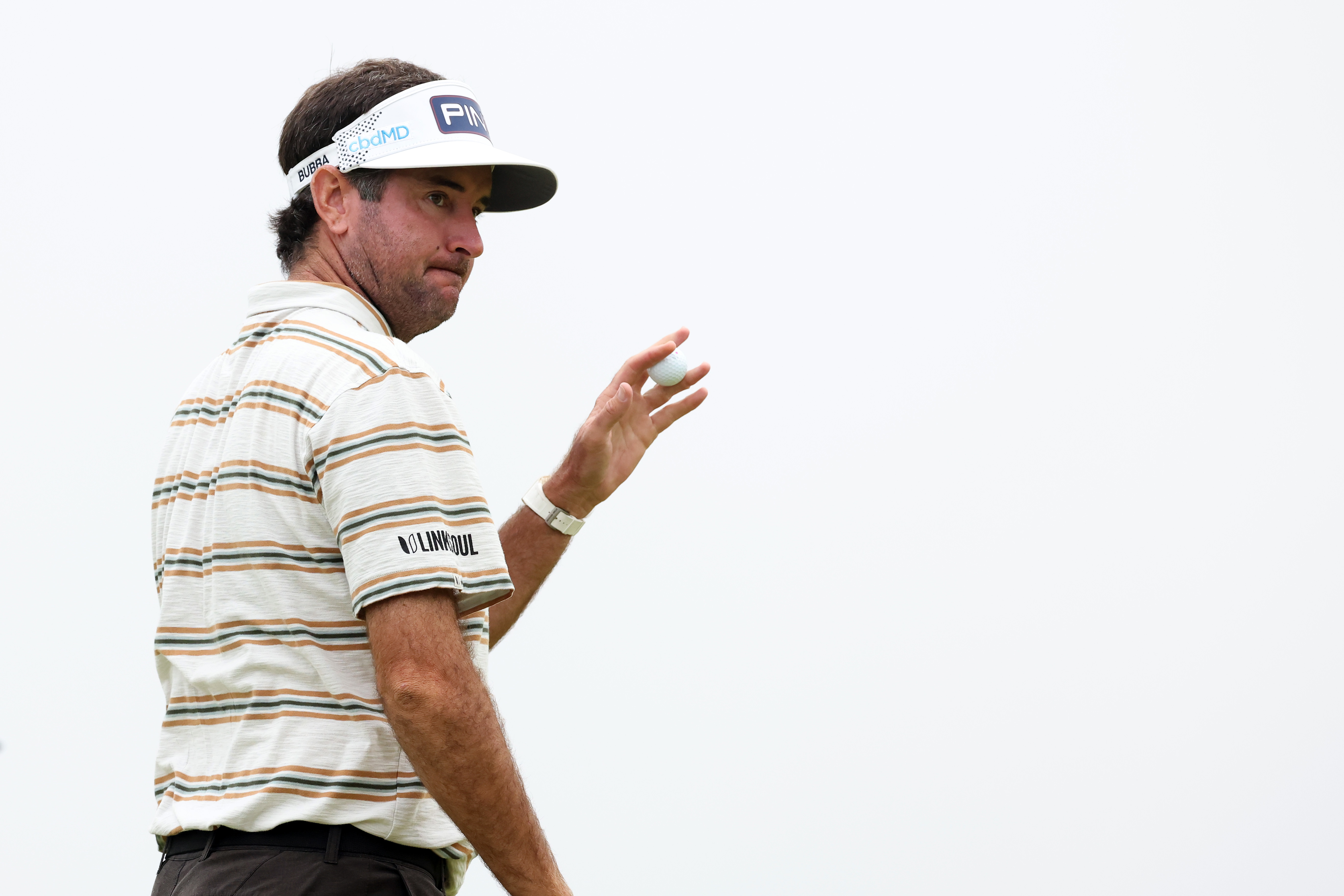SAN DIEGO – Professional golfers know that if they are asked to talk with the media after a round, they did something good and are probably in contention to win. After signing for his 67 on Friday at Torrey Pines, Bubba Watson did not know where he stood on the leaderboard at the 2021 U.S. Open, but being asked to talk with the media was a good sign. He was escorted to an area known as The Flash. It is a small area where, typically, reporters ask about birdies and bogeys and try to get insight into the round.
Having started the day at 1 over, Watson was now 3 under, and two shots off the lead heading into the weekend. However, the first question the two-time Masters champion fielded wasn’t even about him. Instead, it was about a conversation he had with Matthew Wolff about the mental strain and stress of being a professional athlete.
“I love him. I love his family. I love his team,” Watson said candidly. “So I was just talking to them and just shared that I’ve wasted money, I’ve saved money, I’ve bought businesses, sold businesses, I’ve lost 20, 30 pounds because of struggles. I said, I’ve done everything you’re thinking about, I’ve done it all. So I said, so if you ever want advice, just call me, and so that’s what I said.”
On Thursday, Wolff shot 70, and in the same area where Watson talked Friday, he told reporters that he left the PGA Tour earlier this season because he felt he was putting too much pressure on himself.
“I mean, I love these fans, and I want to play well for them, but right now I’m just really trying to be happy,” Wolff said. “I live a great life and I want to enjoy it.”
Wolff talked about trying to keep things in perspective, about wanting to play well but prioritizing his happiness and wellbeing more than a score. He said talking with people close to him helped. This week, Bubba Watson wanted to be sure that Wolff knew he could relate and that he could be someone Wolff could talk with, too.
“I was going to text him a few weeks ago, but I wanted to talk to him in person,” Watson said. “So that’s what I did. Obviously, he hasn’t called me. He did pretty good yesterday. He had eight birdies. I was just trying to give him my two cents. He didn’t ask for it, but I gave it to him anyway.”
The mental health and wellbeing of athletes has been a hot topic recently. At the recently completed French Open tennis championship in Paris, Naomi Osaka, the top-ranked female tennis player in the world, withdrew after a first-round win.
Before the tournament started, she said she would forgo media requests and interviews. She revealed that after winning the 2018 U.S. Open, she suffered from depression. Michael Phelps, a 23-time Olympic gold medalist in swimming, has also talked about his struggles with depression and how therapy has helped him deal with personal issues. He came out in support of Osaka’s decision.
Watson has been candid about his mental health challenges, his nervousness and quirks. He told Golfweek in November, “I’ve sought help in many different ways, many different forms, trying to overcome (anxiety). It really comes down to me being nuts. I’m trying to make light of it because using humor helps. But it’s all in my head. It’s all anxiety. I think more people are speaking out about mental issues and I want to be one of them.”
Watson is now 42. He has been married to his wife, Angie, for 17 years and points to that as a highlight of his life. Adopting the couple’s two children is another.
Eventually, Watson returned to talking about how much he hates three-putting, how much the course has changed since he won the Farmers Insurance Open here and what he needs to do to win.
“I’m just hitting big slices, trying to get the ball in play, but I can see this golf course a lot better, and I got some confidence knowing that some areas are patchy, where you can play out of the rough when you miss the fairway,” he said. “As long as you’re missing it in the right places, you still have a chance.”
Bubba seems very happy with that.

